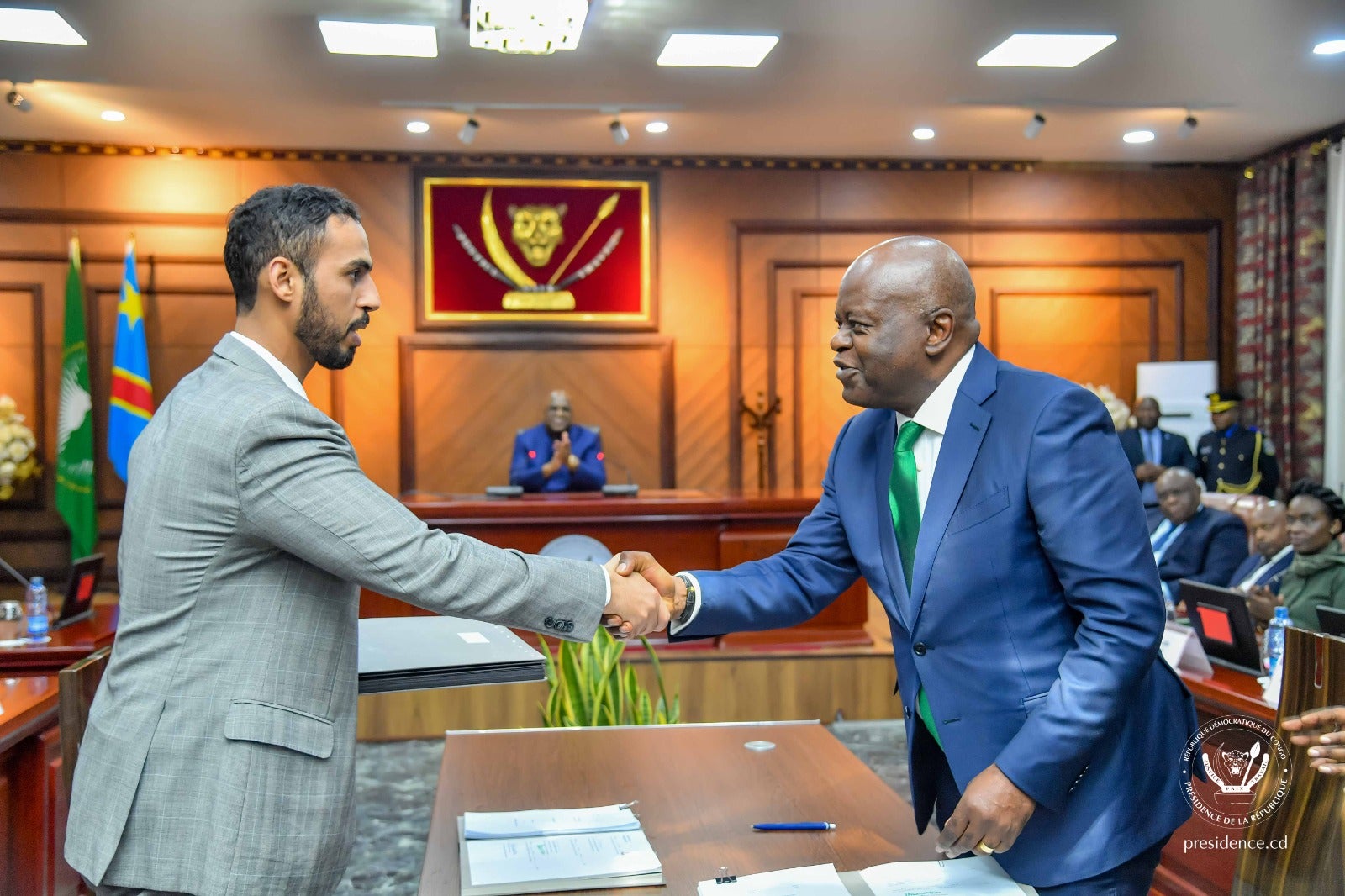
On Monday, the Democratic Republic of Congo’s (DRC) government and a delegation of officials from the United Arab Emirates (UAE) signed a partnership to develop several mines in eastern Congo.
The deal between the two nations is worth upwards of $1.9bn, Congolese President Felix Tshisekedi’s office said in a statement on its website, and “will make it possible to set up more than four industrial mines which should connect the provinces of South Kivu and Maniema”.
Welcoming the new project, Tshisekedi added: “For me, it is the love of the country and of the Congolese people that takes precedence. Any project that comes to transform the Congo will be welcome”. The UAE delegation is made up of several private and public business leaders, with Sheilk Shakhboot Nahyan Al Nahyan, the UAE’s Minister of State, heading the group.
Several Congolese business leaders and members of government attended the ceremony, including the deputy prime minister in charge of the interior, the minister of defence, the minister of infrastructure and public works, as well as the ministers of mines, portfolio and public health.
The statement did not specify which minerals will be mined, although the provinces of South Kivu and Maniema are rich in gold, tin ore and tantalum.
Both provinces have also suffered from decades of violence by armed groups, which sometimes support themselves through the illegal minerals trade. According to a report published last month by intergovernmental body the International Organization for Migration (IOM), a surge in attacks on civilians by non-state armed groups in eastern DRC has displaced approximately one million people since January. In total, an estimated 6.1 million people are currently internally displaced in DRC, a 17% increase from October last year.
On 11 June, at least 46 people were killed, including children, while others were injured following an attack by an armed group on the Lala displacement site in the eastern part of the Ituri province. The escalating violence caused the IOM to declare a scale-up of humanitarian operations in the country in an effort to provide more effective support and a better crisis response to the nationwide emergency.




